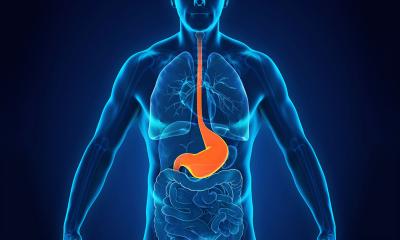
GERD: Gastroesophageal Reflux Disease
Gastroesophageal Reflux Disease (GERD) is a chronic condition where stomach acid flows back into the esophagus, causing symptoms like heartburn, regurgitation, and discomfort. It's important to understand your diagnosis and treatment options.
Lifestyle Modifications:
-
Diet: Avoid trigger foods like citrus, spicy foods, chocolate, caffeine, and fatty foods. Opt for smaller, more frequent meals and avoid overeating.
-
Weight Management: Maintain a healthy weight as excess weight can worsen GERD symptoms.
-
Elevate Head: Sleep with your head elevated to prevent nighttime reflux.
-
Avoid Tight Clothing: Tight clothes can put pressure on your stomach and aggravate symptoms.
-
Avoid Smoking and Alcohol: Both smoking and alcohol can weaken the lower esophageal sphincter (LES) and increase acid reflux. Quitting smoking and moderating alcohol intake can improve symptoms.
-
Manage Stress: Stress can worsen GERD symptoms. Engage in relaxation techniques like deep breathing, meditation, yoga, or hobbies you enjoy.
-
Stay Hydrated: Drink plenty of water throughout the day to maintain healthy digestion.
-
Wear Loose Clothing: Loose-fitting clothes can help prevent pressure on your stomach, reducing the likelihood of acid reflux.
-
Monitor Your Symptoms: Keep a journal to track what triggers your symptoms and what provides relief. This can help you identify patterns and make informed decisions.
-
Elevate the Bed: If nighttime reflux is an issue, elevate the head of your bed by around 6 to 8 inches to prevent stomach acid from flowing back into the esophagus.
Medication:
-
Antacids: Over-the-counter antacids can provide temporary relief from heartburn.
-
H2 Blockers: Histamine H2-receptor blockers reduce stomach acid production.
-
Proton Pump Inhibitors (PPIs): Prescription PPIs can significantly reduce acid production and promote healing.
If your symptoms are severe, persistent, or not responding to lifestyle changes, consult your doctor. They can adjust your treatment plan, suggest additional tests, or recommend a specialist if needed. Every individual's experience with GERD can be different, so it's important to tailor your management plan to your specific needs. Always follow your healthcare provider's recommendations for the best outcomes.
Remember, this guide is not a substitute for professional medical advice. Always consult a healthcare professional for accurate diagnosis and treatment or any other medical concern.
In an emergency, please call 911 immediately!
